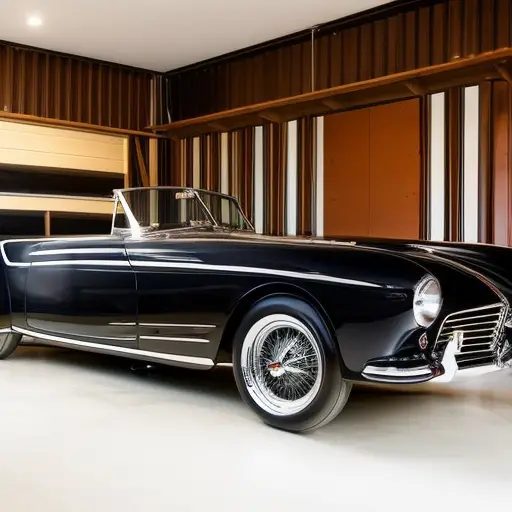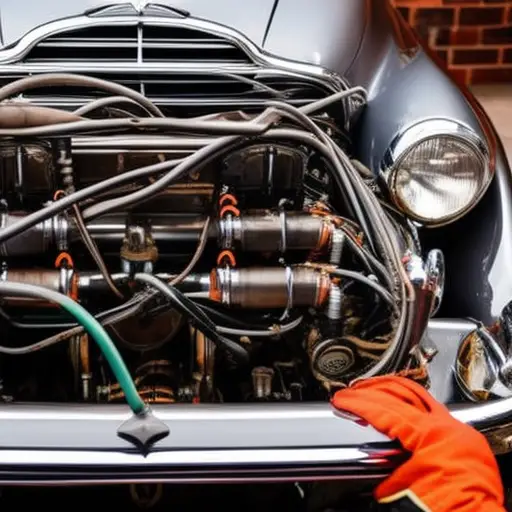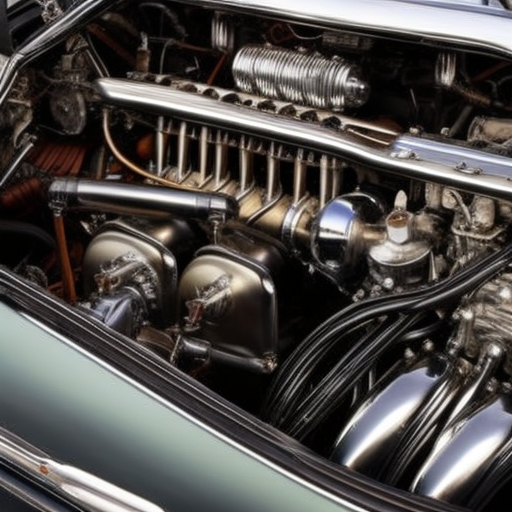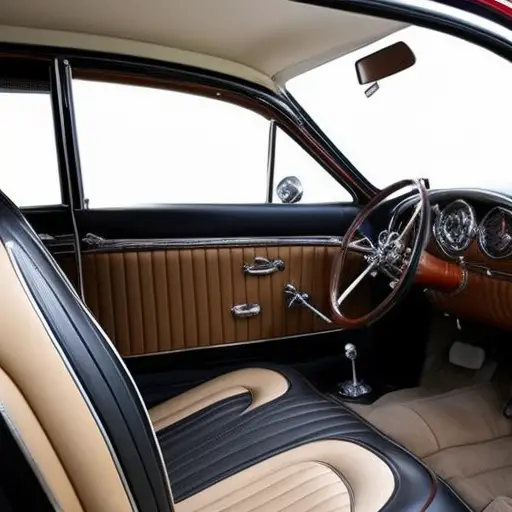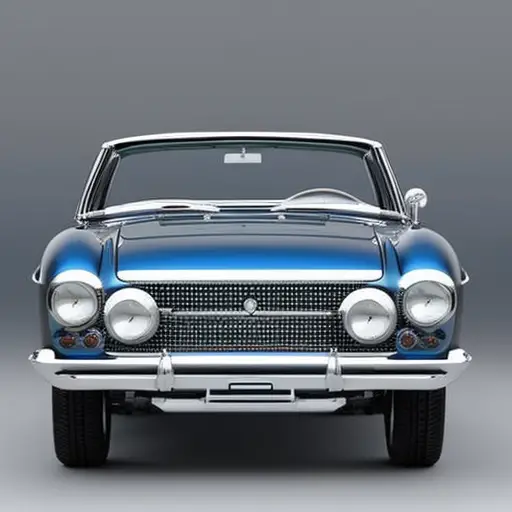The Influence of Car Clubs in the Restoration Community
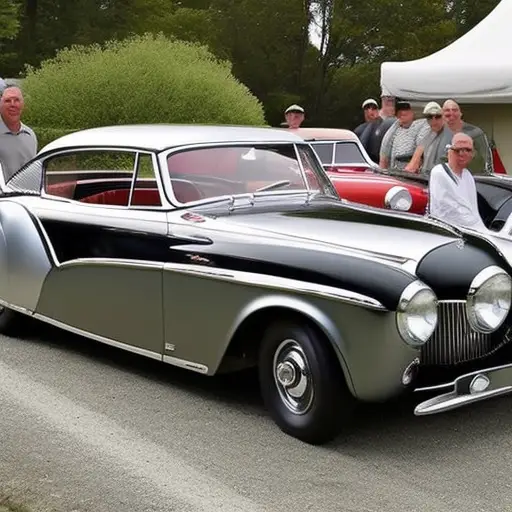
Like the intricate stitching on a classic car’s leather interior, car clubs intricately weave together the restoration community, fostering knowledge exchange, preservation, and skill development.
These clubs serve as a hub for enthusiasts to share expertise, organize events, and mentor newcomers. Their influence is profound, shaping the restoration landscape and safeguarding the heritage of classic automobiles.
In this article, we will explore the pivotal role of car clubs in preserving and advancing the restoration community.
History of Car Clubs
The history of car clubs dates back to the early 20th century when enthusiasts began forming groups to share their passion for automobiles and exchange knowledge and resources. These clubs were instrumental in fostering a sense of community among individuals who shared a common interest in automobiles.
Initially, these clubs served as a platform for social networking, allowing like-minded individuals to come together and bond over their love for cars. As the automotive industry evolved, so did the car clubs. They played a pivotal role in shaping the car culture, influencing trends, and contributing to the preservation of automotive history.
Car clubs provided a space for members to engage in discussions about the latest technological advancements, share restoration tips, and organize events such as car shows and road trips. The camaraderie and knowledge exchange within these clubs have been essential in preserving the heritage of classic and vintage cars.
The rich history of car clubs stands as a testament to the enduring passion and dedication of automotive enthusiasts.
Knowledge Sharing and Expertise
An integral aspect of car clubs’ influence in the restoration community lies in the extensive knowledge sharing and expertise exchanged among members. Restoration techniques and best practices are at the forefront of these exchanges, with members often sharing their experiences and insights into the most effective methods for restoring classic cars. Whether it’s discussing the intricacies of bodywork, paint restoration, or engine rebuilding, car club members have a wealth of knowledge to offer.
Networking and making connections within the restoration community are also vital components of knowledge sharing. Through car clubs, members can connect with experts in specific areas of restoration, gaining access to invaluable advice and guidance. This interconnectedness allows for a continuous flow of expertise, ensuring that best practices are upheld and passed down through generations of automotive enthusiasts.
Furthermore, the sharing of expertise within car clubs fosters a sense of camaraderie and mutual support, creating an environment where members can learn from one another’s successes and challenges. This collaborative approach not only benefits individual enthusiasts but also contributes to the preservation and advancement of restoration techniques within the wider community.
Preservation of Classic Cars
Preservation of classic cars is a fundamental priority for car clubs within the restoration community. The commitment to maintaining the originality and authenticity of classic automobiles drives the passion of enthusiasts. Through the preservation of these iconic vehicles, car clubs aim to honor the history and heritage of automotive craftsmanship. This dedication involves the implementation of meticulous restoration techniques that ensure the conservation of each car’s unique character and historical significance.
The following table illustrates the essential elements of classic car preservation:
| Preservation Aspects | Description |
|---|---|
| Original Parts | Utilizing authentic components to maintain the integrity of the vehicle |
| Period-Correct Features | Ensuring that modifications align with the car’s era and original design |
| Documentation | Recording the vehicle’s history, including previous owners and restorations |
| Preventive Maintenance | Regular care to prevent deterioration and preserve the car’s condition |
| Heritage Conservation | Upholding the cultural and historical value of classic cars |
Community Events and Engagement
Throughout the year, car clubs organize various community events and engagement activities to foster camaraderie among restoration enthusiasts. These events serve as platforms for outreach programs and networking, allowing members to connect with like-minded individuals who share a passion for classic car restoration.
Car clubs often host volunteer opportunities, encouraging members to give back to their communities through car-related initiatives such as charity car shows, restoration workshops, or educational programs. Furthermore, these events provide fundraising opportunities for charitable causes related to automotive restoration, preserving the heritage of classic cars, and supporting local communities.
Mentorship and Skill Development
Mentorship and skill development are integral components of the restoration community, fostering knowledge transfer and expertise enhancement among enthusiasts. Hands-on workshops play a crucial role in this process, providing members with the opportunity to learn from experienced craftsmen and artisans. These workshops allow individuals to gain practical experience in various restoration techniques, from metalworking and upholstery to engine rebuilding and electrical system refurbishment. By working alongside seasoned professionals, enthusiasts can refine their skills and expand their knowledge base, ultimately contributing to the preservation of automotive heritage.
Furthermore, mentorship within car clubs can also facilitate career advancement for individuals interested in pursuing professions within the automotive restoration industry. Experienced mentors can provide guidance on career pathways, offer valuable industry insights, and even connect mentees with potential employment opportunities or apprenticeships. This guidance is particularly valuable for young enthusiasts who aspire to build careers in automotive restoration, as it equips them with the skills, knowledge, and networking opportunities necessary for long-term success in the field.
Ultimately, mentorship and skill development not only enrich the restoration community but also contribute to the continued growth and evolution of the automotive restoration industry.
Frequently Asked Questions
What Are Some Common Challenges Faced by Car Clubs in the Restoration Community?
Common challenges faced by car clubs in the restoration community include securing adequate funding for projects, maintaining a strong and engaged membership base, and finding effective solutions to overcome technical and logistical restoration obstacles.
How Do Car Clubs in the Restoration Community Prioritize Which Classic Cars to Preserve and Restore?
Prioritizing projects in the restoration community involves considering restoration trends, preservation techniques, and community engagement. Classic car selection is influenced by historical significance, rarity, and member input. Restoration project management ensures efficient allocation of resources.
What Are Some Unique Ways That Car Clubs in the Restoration Community Engage With the Local Community and Promote Their Passion for Classic Cars?
Car clubs in the restoration community engage with the local community through hosting local events, outreach programs, and partnering with community organizations. They promote their passion for classic cars through educational workshops and sharing restoration and preservation methods.
How Do Car Clubs in the Restoration Community Support and Encourage Mentorship and Skill Development Among Their Members?
Mentorship programs and skill-building workshops are integral to the support and encouragement of member development within car clubs. These initiatives provide hands-on learning experiences, foster a sense of community, and contribute to the preservation of restoration skills.
What Are Some Innovative Ways That Car Clubs in the Restoration Community Are Using Technology to Connect and Share Knowledge With Fellow Enthusiasts?
Virtual workshops and online forums have revolutionized the restoration community. Car clubs leverage technology to host interactive workshops, share expertise, and connect enthusiasts globally. Through these platforms, members collaborate, learn, and advance restoration skills.
Conclusion
In conclusion, the influence of car clubs in the restoration community is undeniable.
From their rich history and knowledge sharing to the preservation of classic cars and community events, car clubs play a vital role in mentorship and skill development.
Their impact is felt not only in the restoration community but also in the larger automotive industry.
Car clubs continue to inspire, educate, and bring enthusiasts together, creating a thriving and passionate community dedicated to the love of classic cars.

